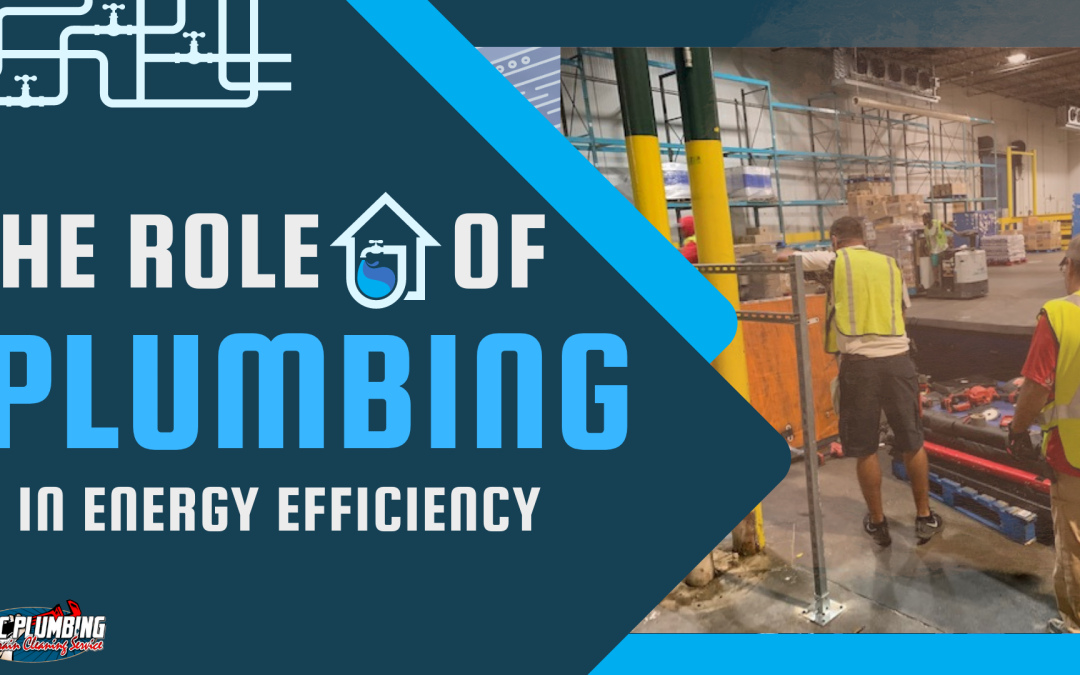When people think about energy efficiency, they often jump to high-tech solutions like solar panels, efficient appliances, or smart home systems. However, one crucial yet often overlooked aspect of energy conservation lies right under their feet: plumbing. Plumbing systems play a significant role in energy efficiency, impacting both the environment and your wallets. In this blog post, you’ll explore the various ways plumbing contributes to energy efficiency and how simple measures can make a substantial difference.
- Water Heating Efficiency
Water heating accounts for a significant portion of energy consumption in most households. Plumbing systems influence the efficiency of this process in several ways:
a) Insulated Pipes: Well-insulated hot water pipes help maintain water temperature as it travels from the water heater to the faucet. By minimizing heat loss during distribution, insulated pipes reduce the need for the water heater to work harder and reheat water, resulting in lower energy consumption.
b) Efficient Water Heaters: Plumbing professionals can recommend and install energy-efficient water heaters, such as tankless or heat pump systems. These technologies heat water on demand, avoiding the standby energy losses associated with traditional storage tank heaters.
- Water Conservation
Reducing water usage not only conserves a precious resource but also decreases the energy required for treating and distributing water. Plumbing fixtures and systems play a vital role in achieving water efficiency:
a) Low-Flow Fixtures: Replacing older, inefficient fixtures with low-flow alternatives, such as faucets, showerheads, and toilets, significantly reduces water consumption. These fixtures maintain high-pressure water flow while reducing the overall volume used, resulting in both water and energy savings.
b) Greywater Systems: Plumbing can facilitate the collection and reuse of greywater, which is wastewater from sources such as sinks, showers, and washing machines. By diverting and treating this water, it can be repurposed for irrigation or toilet flushing, reducing the need for fresh water and the energy required to pump and treat it.
- Leak Detection and Repair
Undetected leaks can waste significant amounts of water and energy. Plumbing systems can aid energy efficiency through regular leak detection and timely repairs:
a) Water Leak Monitoring: Smart plumbing systems equipped with leak detection sensors can identify leaks quickly, preventing water waste and potential water damage. By minimizing water loss, these systems contribute to overall energy efficiency.
b) Energy Loss Prevention: Plumbing leaks not only waste water but can also lead to energy loss. Leaky pipes or faucets can result in constant hot water flow or increased energy demand to maintain water temperature. Prompt plumbing repairs can prevent such energy losses, improving overall efficiency.
- Rainwater Harvesting
Plumbing can play a vital role in rainwater harvesting, a sustainable practice that reduces the reliance on traditional water sources and saves energy:
a) Rainwater Collection Systems: Properly designed plumbing systems can collect rainwater from rooftops and direct it to storage tanks for later use. This harvested water can then be used for various non-potable purposes, such as landscape irrigation or toilet flushing, reducing the demand for treated water and conserving energy.
In the pursuit of energy efficiency, plumbing often remains an unsung hero. By embracing smart plumbing practices, homeowners and businesses can make significant strides in conserving both water and energy. From water heating efficiency to water conservation, leak detection, and rainwater harvesting, plumbing systems have the power to reduce environmental impact and lower utility bills. So, the next time you consider energy-efficient upgrades, remember the crucial role plumbing plays in this endeavor, and consult a plumbing professional to maximize your conservation efforts. Let us all appreciate the hidden hero beneath our feet that makes energy efficiency possible.


